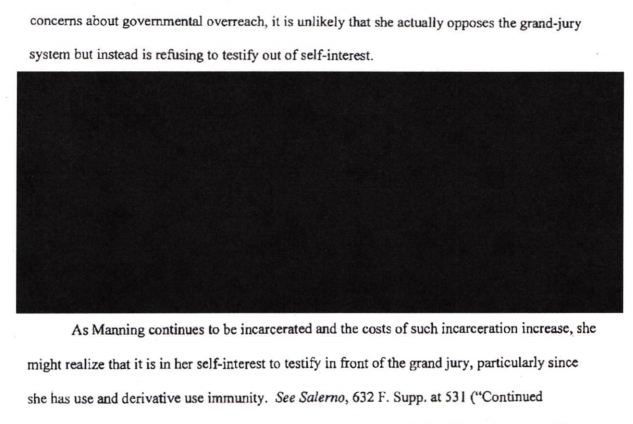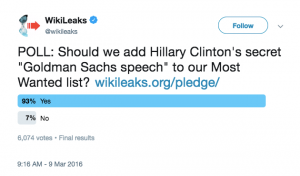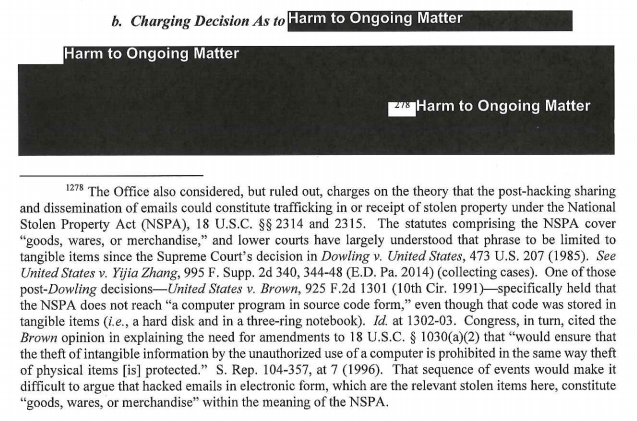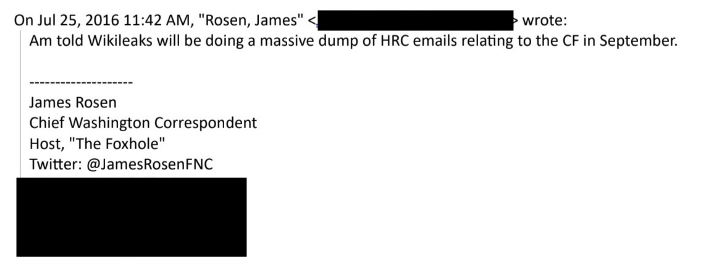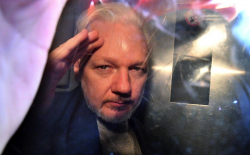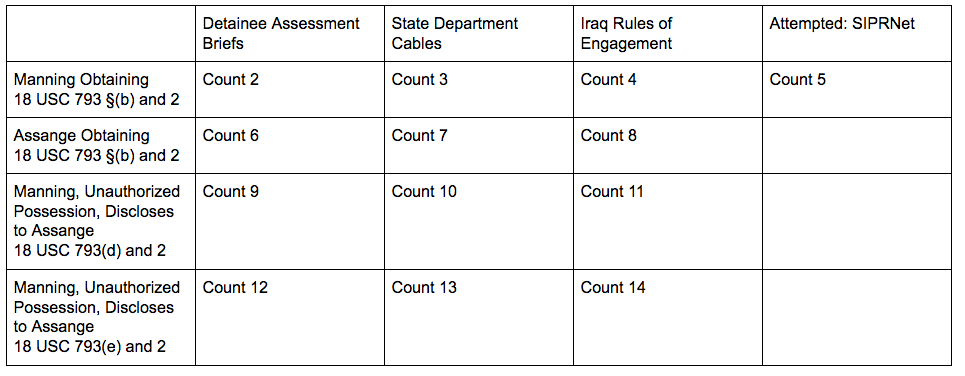Questions for Robert Mueller (and His Prosecutors) that Go Beyond the Show
I generally loathe the questions that people are drafting for Robert Mueller’s July 17 testimony before the House Judiciary and Intelligence Committees, largely because those questions are designed for a circus and not to learn information that’s useful for understanding the Mueller investigation. Here are the questions I’d ask instead (I’ll update these before Mueller testifies).
- Can you describe how you chose which “links between the Russian government and individuals associated with the campaign of President Donald Trump” to focus your investigation on?
- The warrants released in Michael Cohen’s case and other public materials show that your grand jury conducted investigations of people before Rod Rosenstein formally expanded the scope to include them in October 2017. Can you explain the relationship between investigative steps and the Rosenstein scope memos?
- Lisa Page has explained that in its initial phase, the investigation into Trump’s aides was separate from the larger investigation(s) into Russian interference. But ultimately, your office indicted Russians in both the trolling and the hack-and-leak conspiracies. How and when did those parts of DOJ’s investigation get integrated under SCO?
- An FD-302 memorializing a July 19, 2017 interview with Peter Strzok was released as part of Mike Flynn’s sentencing. Can you describe what the purpose of this interview was? How did the disclosure of Strzok’s texts with Lisa Page affect the recording (or perceived credibility) of this interview? Strzok was interviewed before that disclosure, but the 302 was not finalized until he had been removed from your team. Did his removal cause any delay in finalizing this 302?
- At the beginning of the investigation, your team investigated the criminal conduct of subjects unrelated to ties with Russia (for example, Paul Manafort’s ties with Ukraine, Mike Flynn’s ties to Turkey). Did the approach of the investigation change later in the process to immediately refer such issues to other offices (for example, Michael Cohen’s hush payments and graft)? If the approach changed, did your team or Rod Rosenstein drive this change? Is the Mystery Appellant related to a country other than Russia?
- Did your integration of other prosecutors (generally from DC USAO) into your prosecution teams stem from a resourcing issue or a desire to ensure continuity? What was the role of the three prosecutors who were just detailees to your team?
- Your report describes how FBI personnel shared foreign intelligence and counterintelligence information with the rest of FBI. For more than a year, FBI agents were embedded with your team for this purpose. Were these agents focused just on Russian activities, or did their focus include the actions of other countries and Americans? If their focus included Americans, did it include Trump associates? Did it include Trump himself?
- Can you describe the relationship between your GRU indictment and the WDPA one focused on the WADA hacks, and the relationship between your IRA indictment and the complaint against a Yevgeniy Prigozhin employee in EDVA? Can you describe the relationship between the Maria Butina prosecution and your investigation?
- Do you regret charging Concord Management in the IRA indictment? Do you have any insight on how indictments against Russian and other state targets should best be used?
- In discussions of Paul Manafort’s plea deal that took place as part of his breach hearing, Andrew Weissmann revealed that prosecutors didn’t vet his testimony as they would other cooperators. What led to this lack of vetting? Did the timing of the election and the potential impact Manafort’s DC trial might have play into the decision?
- What communication did you receive from whom in response to the BuzzFeed story on Trump’s role in Michael Cohen’s false testimony? How big an impact did that communication have on the decision to issue a correction?
- Did Matt Whitaker prevent you from describing Donald Trump specifically in Roger Stone’s indictment? Did you receive any feedback — from Whitaker or anyone else — for including a description of Trump in the Michael Cohen plea?
- Did Whitaker, Bill Barr, or Rosenstein weigh in on whether Trump should or could be subpoenaed? If so what did they say? Did any of the three impose time constraints that would have prevented you from subpoenaing the President?
- Multiple public reports describe Trump allies (possibly including Mike Flynn or his son) expressing certainty that Barr would shut down your investigation once he was confirmed. Did this happen? Can you describe what happened at the March 5, 2019 meeting where Barr was first briefed? Was that meeting really the first time you informed Rosenstein you would not make a determination on obstruction?
- You “ended” your investigation on March 22, at a time when at least two subpoena fights (Andrew Miller and Mystery Appellant) were ongoing. You finally resigned just minutes before Andrew Miller agreed to cooperate on May 29. Were these subpoenas for information critical to your investigation?
- If Don Jr told you he would invoke the Fifth if subpoenaed by the grand jury, would that fact be protected by grand jury secrecy? Are you aware of evidence you received involving the President’s son that would lead him to be less willing to testify to your prosecutors than to congressional committees? Can congressional committees obtain that information?
- Emin Agalarov canceled a concert tour to avoid subpoena in your investigation. Can you explain efforts to obtain testimony from this key player in the June 9 meeting? What other people did you try to obtain testimony from regarding the June 9 meeting?
- Did your investigation consider policy actions taken while Trump was President, such as Trump’s efforts to overturn Russian sanctions or his half-hearted efforts to comply with Congressional mandates to impose new ones?
- Can you describe how you treated actions authorized by Article II authority — such as the conduct of foreign policy, including sanctions, and the awarding of pardons — in your considerations of any criminal actions by the President?
- The President did not answer any questions about sanctions, even the one regarding discussions during the period of the election. Do you have unanswered questions about the role of sanctions relief and the Russian interference effort?
- Your report doesn’t include several of the most alarming interactions between Trump and Russia. It mentions how he told Sergey Lavrov and Sergey Kislyak he had fired Comey because of the Russian investigation, but did not mention that he shared classified Israeli intelligence at the meeting. Your report doesn’t mention the conversations Trump had with Vladimir Putin at the G-20 in Hamburg, including one pertaining to “adoptions,” while he was working on the June 9 meeting. The report doesn’t mention the Helsinki meeting. Did your investigation consider these interactions with Russia? If not, are you aware of another part of the government that did scrutinize these events?
- Why did you include Trump’s efforts to mislead the public about the June 9 meeting when it didn’t fit your team’s own terms for obstructive acts?
- You generally do not name the Trump lawyers who had discussions, including about pardons, with subjects of the investigation. How many different lawyers are described in your report to have had such discussions?
- You asked — but the President provided only a partial answer — whether he had considered issuing a pardon for Julian Assange prior to the inauguration. Did you investigate the public efforts — including by Roger Stone — to pardon Assange during Trump’s Administration?
- The cooperation addendum in Mike Flynn’s case reveals that he participated in discussions about reaching out to WikiLeaks in the wake of the October 7 Podesta releases. But that does not appear in the unredacted parts of your report. Is the entire scope of the campaign’s interactions with WikiLeaks covered in the Roger Stone indictment?
- Hope Hicks has claimed to be unaware of a strategy to coordinate the WikiLeaks releases, yet even the unredacted parts of the report make it clear there was a concerted effort to optimize the releases. Is this a difference in vocabulary? Does it reflect unreliability on the part of Hicks’ testimony? Or did discussions of WikiLeaks remain partially segregated from the communications staff of the campaign?
- How many witnesses confirmed knowing of conversations between Roger Stone and Donald Trump about WikiLeaks’ upcoming releases?
- The President’s answers regarding the Trump Tower Moscow match the false story for which Michael Cohen pled guilty, meaning the President, in his sworn answers, provided responses you have determined was a false story. After Cohen pled guilty, the President and his lawyer made public claims that are wholly inconsistent with his sworn written answer to you. You offered him an opportunity to clean up his sworn answer, but he did not. Do you consider the President’s current answer on this topic to be a lie?
- Did Trump Organization provide all the emails pertaining to the Trump Tower Moscow deal before you subpoenaed the organization in early 2018? Did they provide those emails in response to that subpoena?
- In his answers to your questions, President Trump claimed that you received “an email from a Sergei Prikhodko, who identified himself as Deputy Prime Minister of the Russian Federation … inviting me to participate in the St. Petersburg International Economic Forum.” But the footnotes to your discussion of that exchange describe no email. Did your team receive any email? Does the public record — showing that Trump never signed the declination letter to that investigation — show that Trump did not decline that invitation?
As I disclosed last July, I provided information to the FBI on issues related to the Mueller investigation, so I’m going to include disclosure statements on Mueller investigation posts from here on out. I will include the disclosure whether or not the stuff I shared with the FBI pertains to the subject of the post.




